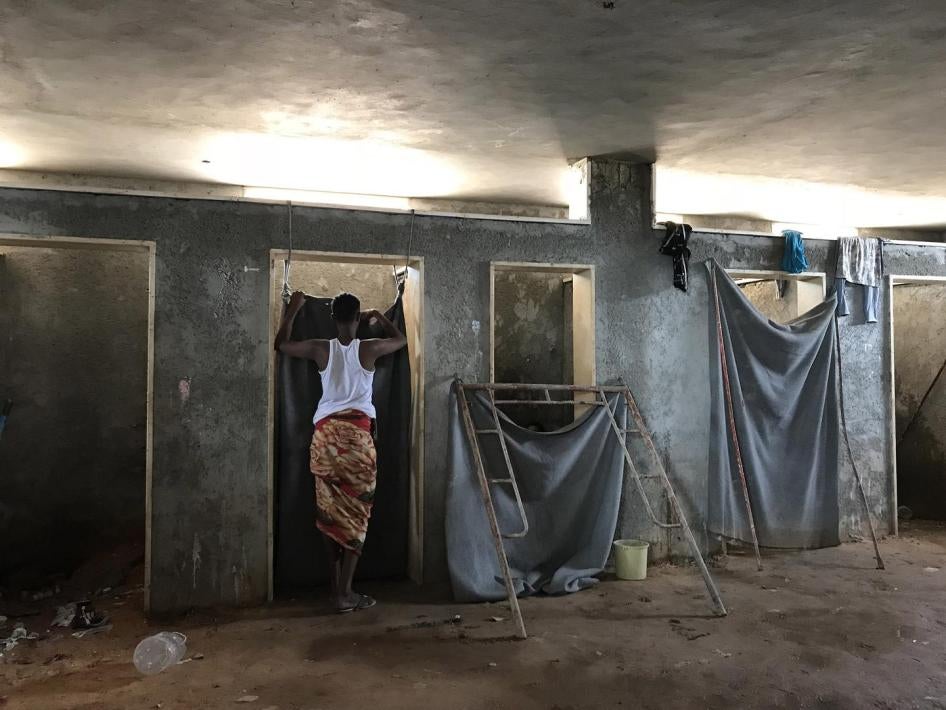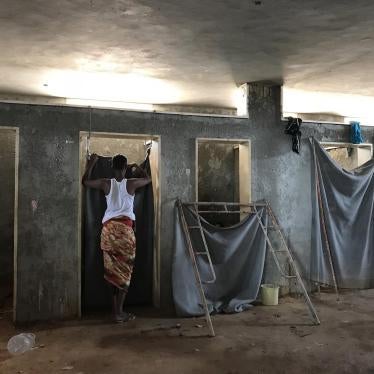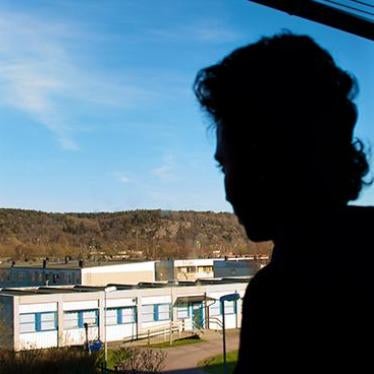“Please try to help us to be evacuated from this critical situation,” the message popped up on my mobile phone. In struggling English, the plea continued: “Our is full of suffering such as starvation, frightened sound of weapons, working as military by force and sickness….”
Women, men, and children held in nightmarish migrant detention centers in western Libya now face an even greater risk than usual to life and limb as fighting by rival factions over the Libyan capital of Tripoli escalates.
In WhatsApp messages and calls over the past several weeks, men (and one boy) from sub-Saharan Africa described to me how they have been forced to work for militias, stockpile weapons, and, in one case, sleep right next to a room full of guns, bullets, and grenades—all of which puts them at risk of attack. They have listed their woes, including a diminishing supply of food, drinking water, and medicine.
They have told me their fears of retaliation for giving me information—which is why I won’t say their names or nationalities—and begged me to help them. A 16-year-old who’s been in detention for a year said he was talking to me from the toilet because he was so frightened of being caught with a phone.
“It’s a war zone. There’s a lot of sounds of bombing. So we are scared. The militias come. Some people want to work with them to get food because there is a lot of starvation.”
Over the years, colleagues and I have spoken with hundreds of people who have experienced captivity and abuse at the hands of smugglers, traffickers, and Libyan officials. Men have told me of being tortured, women have whispered accounts of rape. Children recounted being abused and going hungry and witnessing unspeakable violence.
Last year, I visited four detention centers, in the system nominally under the control of the Tripoli-based Government of National Accord (GNA), where everyone caught trying to reach Europe by sea by the EU-supported Libyan Coast Guard is incarcerated, along with many who didn't even make it that far. Even before the recent flighting, these were miserable places, where people were detained arbitrarily in the most abysmal conditions and exposed to violence, forced labor, extortion, and deprivation.
On April 4, Libyan National Army (LNA) forces based in eastern Libya, under General Khalifa Hiftar, advanced on Tripoli in a bid to oust the GNA. According to the World Health Organization, 432 people have died in the clashes between rival militias, including 23 civilians, and 2,069 have been wounded, including 79 civilians. An estimated 58,800 people have been displaced.
Over 3,400 people are in centers on or near the front lines in and around Tripoli. On April 23, LNA fighters reportedly entered the Qasr Ben Ghashir center, south of Tripoli, and opened fire. Shelling and fighting have surrounded other centers in Tripoli, interrupting delivery of food, water, and health services. On May 7, three detainees at the Tajoura detention center messaged me that an airstrike had hit a part of the compound housing military vehicles, less than 100 meters from where detainees are held. One man told me the blast blew out the windows of his building; UNHCR later confirmed that two people were injured by the airstrike.
While the United Nations has called for a humanitarian truce, General Hiftar has urged his fighters to persevere during the Muslim holy month of Ramadan, which began on May 5, and the prime minister of the besieged GNA, Fayaz al-Sarraj, is asking for more help from Europe to repel the attack.
UN agencies have helped transfer hundreds of detainees from centers closest to the fighting to others, a life-saving but temporary intervention since front lines change with the ebb and flow of the fighting. The UN refugee agency, UNHCR, has managed to evacuate about 163 refugees to its center in Niger, and 146 directly to Italy since the outbreak of hostilities. These laudable efforts are still nowhere near enough.
Migrants and refugees trapped in Libya urgently need help reaching places of safety. The international community should heed calls from UNHCR and the UN High Commissioner for Human Rights to help create humanitarian corridors to safety, including outside of Libya, for the people currently detained in Tripoli and surrounding areas.
The EU and other governments should ramp up their resettlement efforts for those already evacuated from Libya to Niger, which would allow for more transfers there, and follow Italy’s example of direct evacuation. They should also call unequivocally on Libyan authorities to release all migrants and refugees who are arbitrarily detained.
The WhatsApp message I received asking for evacuation ended with a simple call: “We would just like to be in safe place.” Let’s hope the world is listening.









